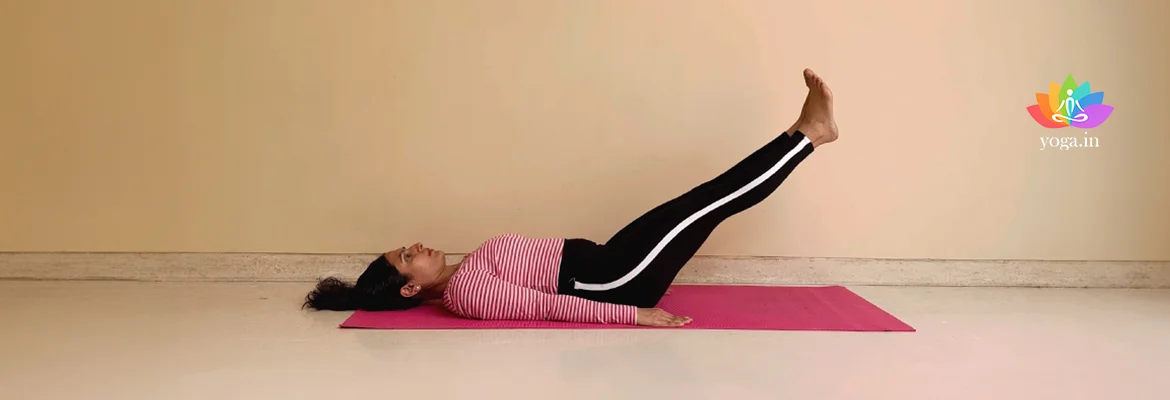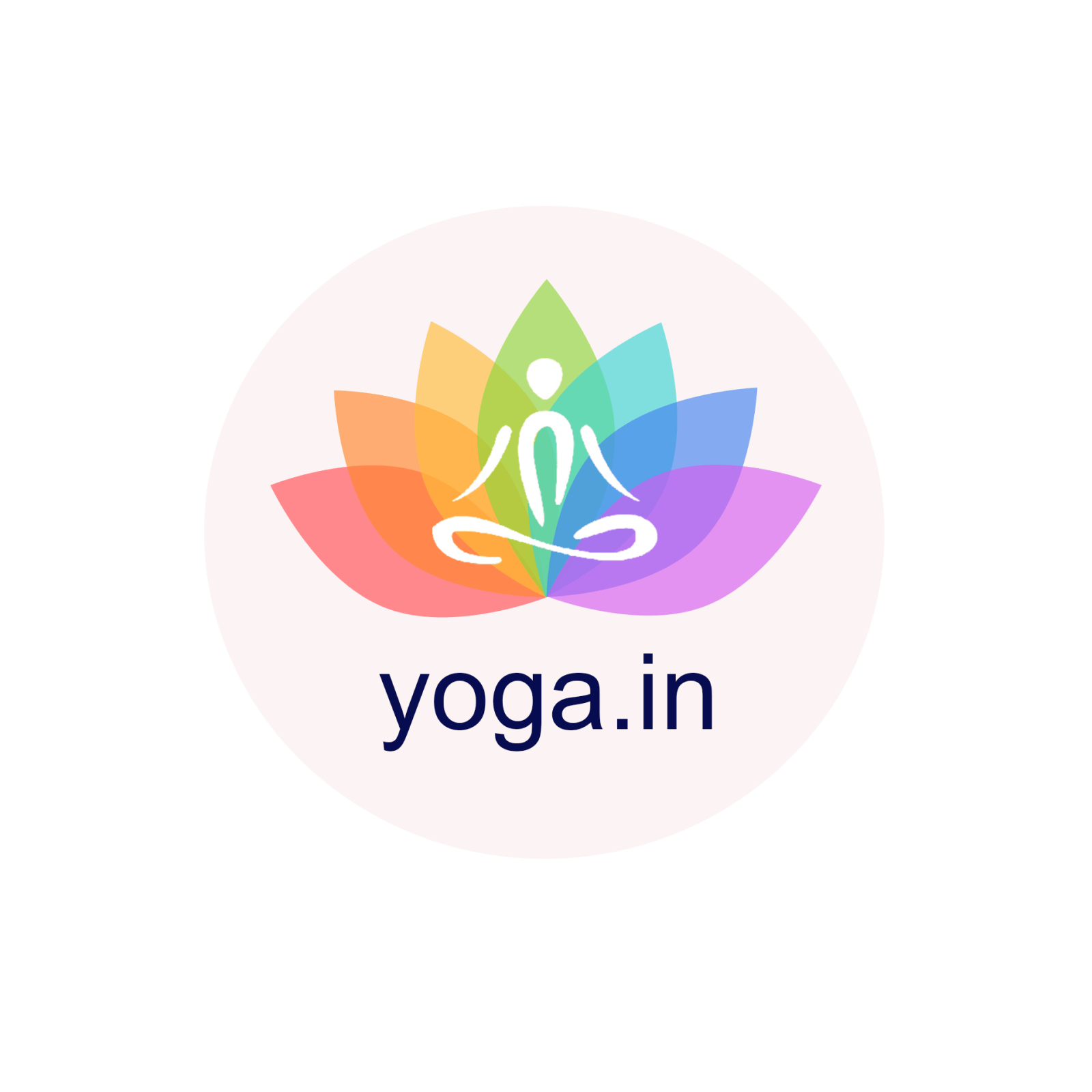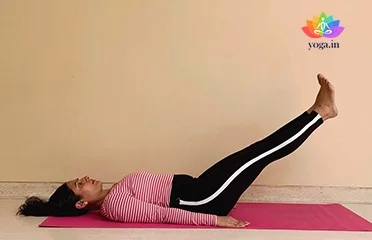Begin this pose by coming to a supine position with your back on the ground and the arms on your sides.
Introduction to the Asana
In Sanskrit, Uttana means ‘raised’, and pada means ‘leg’; thus, Uttanpadasana is also called the raised leg pose.
Step to get in the pose
-
-
Both your feet and knees should be kept together, and your breathing should be normal.
-
Exhale and while breathing in, slowly raise the legs to a 45-degree angle from the floor without bending your knees. You can also elevate your legs to 90 degrees with your toes pointing to the ceiling.
-
Do not raise the shoulders from the ground or bend the knee or lift the lower body or buttocks from the floor.
-
Continue to keep your back straight on the mat with your arms by your sides.
-
Breathe normally in the final position and hold for few seconds.
-
During the final position, your legs should be kept straight with the toes pointed to the ceiling.
-
Keep your upper body, arms, and face relaxed.
-
Keep your head straight with your eyesight fixed on the raised toes.
-
While releasing, inhale and while exhaling slowly lower the legs back to the supine position.
-
Relax and breathe normally.
Common mistakes and pitfalls
-
Bending the knees or lifting the lower body or buttocks from the floor.
-
Pulling yourself too hard.
-
Straining or lifting your head too soon, straining your shoulder and neck muscles.
Benefits
-
Gives a good stretch to the hamstrings, glutes and calves.
-
Improves flexibility of the spine and strengthens your back.
-
Tones and strengthens the abdomen, pelvic floor and leg muscles.
-
Increases blood circulation and stimulates the reproductive organs.
-
Increases the metabolism and aids digestion.
-
Keeps your brain sharp and healthy and prevents neurodegenerative conditions such as Parkinson’s and Alzheimer’s.
Contraindication
-
Avoid this posture if there is any injury or recent surgery in the neck, back, pelvis, or leg muscles.
-
Avoid if you are suffering from a hernia, ulcers, slipped disc, spondylitis or severe back pain.
-
Avoid If you have undergone hernia-repair surgery.
-
Avoid if you are suffering from cardiac diseases or blood pressure.
-
Avoid during pregnancy and menstruation.
-
Avoid if suffering from migraine.




